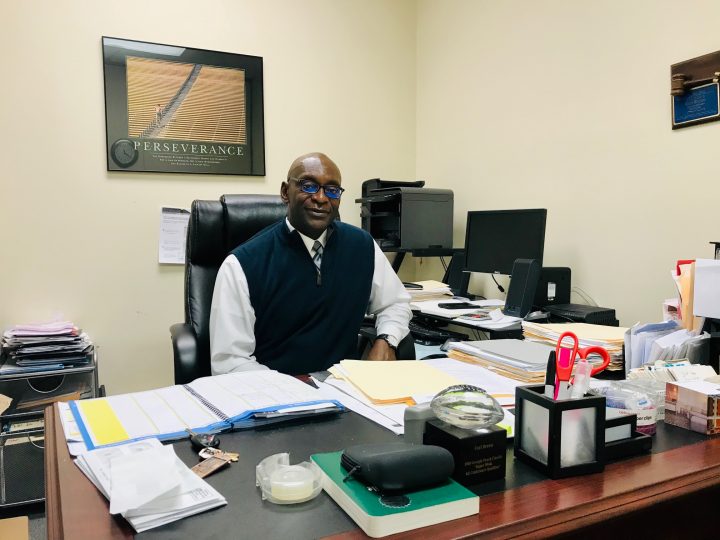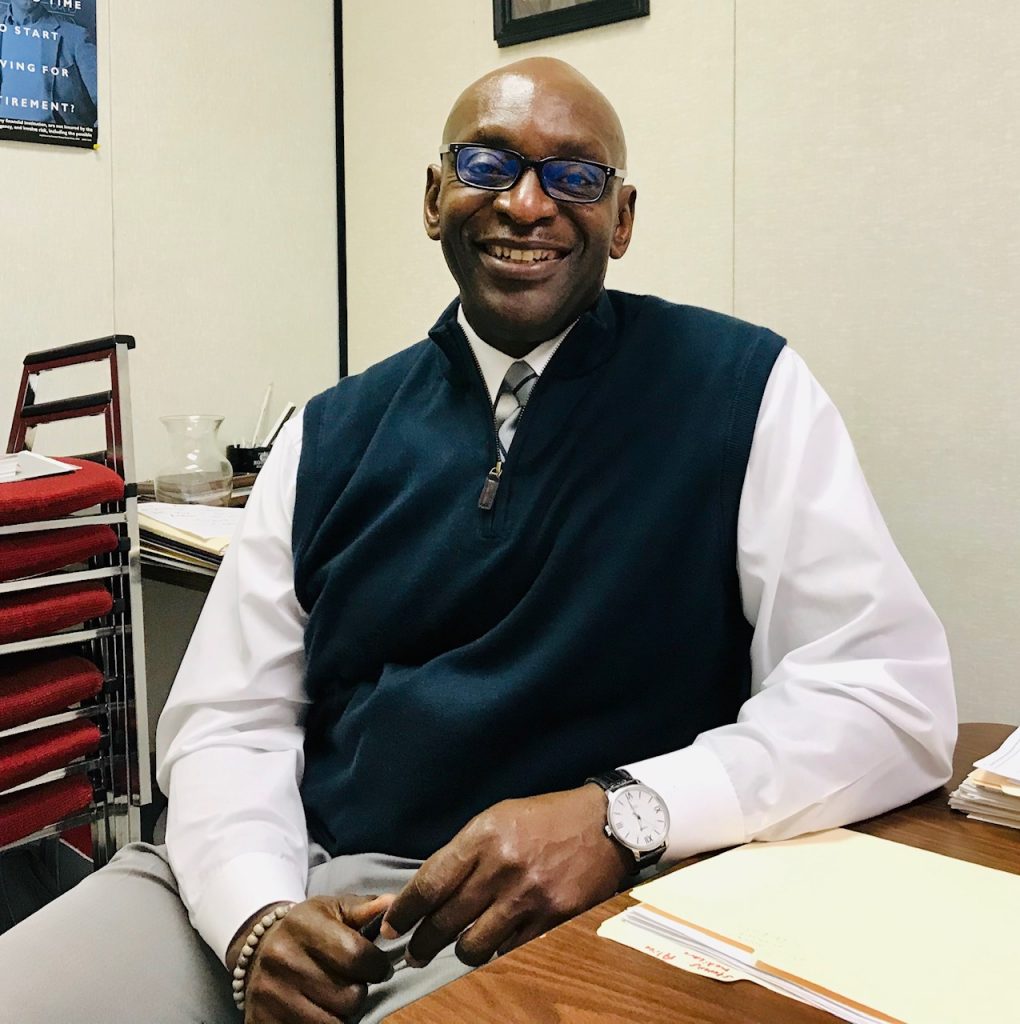
Insurance Broker, Financial Consultant,
Veteran, Community Leader
Why is finding and buying an individual health insurance plan so confusing and frustrating?
“One of the main reasons is that, after the Affordable Care Act was incorporated, so many companies had to decide if they wanted to actually participate in it.
So you had companies going in, companies going out. That forced a lot of people to find a new insurance company. And a lot of people don’t know what to look for when selecting a company.
When all this started in 2014, we had 5 different insurance companies offering coverage here in our area. Now we’re down to 1.”
Have you seen changes among your clients as far as what’s called the ‘gig economy.’ Are you finding more folks are self-employed now and thus buying their own insurance?
“Definitely seeing more people are self-employed now..
Again, the problem is that a lot of people don’t know what to look for. Plus, incomes are hard to gauge exactly when you’re sell-employed. One of the things about Healthcare.gov set up under the Affordable Care Act, they look at your IRS returns. What income you’ve reported in the past. What income you’re estimating for the next year that you’re buying coverage for. A lot of times when you’re self-employed, you don’t know what you’re going to be making next year.”
What exactly is open enrollment?
“Open enrollment is the time when you can buy health insurance. It runs November 1 through December 15.
It was a compromise between insurance companies and the federal government once they put the Affordable Care Act into place, to make sure people don’t wait until they’re chronically sick to buy health insurance.
Because now, insurance companies are required to accept anybody that applies. There’s no pre-existing conditions held against them. And there’s no additional premiums for someone who has an illness. So say someone who runs 26 miles in a marathon, and a person who needs a heart transplant, apply for health insurance, there’s not going to be any difference in their premium, at all.
The only thing they can charge you extra for is if you’re a cigarette smoker.”
How is that proven?
“It’s not proven. That’s one of the things about it. It’s just a simple question and you answering to attest to that fact that, ‘No, no I do not smoke.’
What are some of the concerns and complaints you hear from your clients ?
“One of the things that we see more often than anything else is people don’t know how to navigate the system.
What’s co-insurance? What’s a co-pay? What’s a deductible? Does my doctor take the plan? Will my prescriptions be covered?
Also, coming up with the right premium. What type of information do you need to get the correct premium?
The federal government has a 1-800 number you can call. Unfortunately, it’s only a call center, so all they do is take your information, put it into a computer, and it matches you up with available plans.
What we’re able to do is get deeper into the questions to help determine answers for what you’re doing now and looking to be able mo do in the long run. We get to know things like if you’re married and how you both file. Because one of the Healthcare.gov requirements is that, if you’re married, then you have to file joint tax returns. You’d be surprised how many people who are married who do not file joint tax returns. And that’s held against them.”
Nationally, what are the changes we’ve seen under President Trump?
“The most prevalent thing has been the extension of the short-term plans.
We call them limited-benefited plans. They can hold pre-existing conditions against you. You don’t qualify for any tax subsidies to help pay your premiums. There is a max amount they will spend, while, under the Affordable Care Act, companies are required to offer certain preventive services. Under the short-term plans, they’re not required to offer those plans.”
They also got rid of the Individual Mandate.
One of the things about the mandate is that it would be people that didn’t use the insurance that much are part of the paying public on a daily basis as much would offset some of those costs.
Because now, when you’re enrolled in a plan, there’s no limit to what they can pay on a person.
There’s no pre-existing condition. Say you need a new heart and there’s a heart available, or if you suffer from cancer, they have to start treating you right away, Jan. 1, as soon as you’re enrolled.
When you don’t have young, or even healthy, people as part of that system, it makes it more expensive for the companies, because there’s no dollar limit to what they may have to spend on a person.”
In Georgia, what changes have we seen—or what changes are coming—under Gov. Brian Kemp?
“As of now, there have been no changes. We hear talk of Medicaid expansion. And what that entails is what the federal government calls the federal poverty-level to determine what type of subsidy you would be eligible for. If you’re working, there’s always the complaint that you work too hard for qualify for help and don’t. But it also works on the other side, too. You can have a person if they’re a dollar below the federal poverty level, then they don’t get $1 in help from the federal government.
I always use the example of a single mother that may be working, and she doesn’t qualify for assistance, though the child may be able to get Medicaid, if they’re under age 19. Let’s say she’s making $16,900 a year. If she goes up to, say, $16,910—then she may not get any help at all.
When the law was originally written, those people would be able to qualify for Medicaid. Now, in turn, when the Supreme Court ruled that the Affordable Care Act was constitutional, one of the things they did was determine that Medicaid was a state’s rights issue. So it’s up to the individual states to determine whether or not they want to accept Medicaid expansion. So what you’ll find is that in most of your blue states, you see Medicaid expansion. But in the red states, which is most of the South—except for Louisiana, which has a Democratic governor—there’s no Medicaid expansion.
Kemp has said he’s looking at the possibility of applying to the federal government for a waiver—because most of the money for Medicaid comes from the federal government. And the waiver, it’s basically telling states, ‘We’re going to let you, let’s say in the form of a block grant, apply for that funding.’
I read a report that was released 2 weeks ago which basically said is that it won’t happen in 2020, but most likely in 2021, that some sort of expansion will come to Georgia. It requires those who quality for the expansion to be working, seeking work, going to school, or volunteering. Of course, the fine print still has to be worked out.”
Politics aside, do you think the proposals to create nationwide Medicare is feasible?
“No, I do not.
But I think it needs to be an option. If it was an option, I think it would force insurance companies to then have more competition. As most of us know, if you have competition, you have to start to look at how much you’re charging someone.
I do sell Medicare-type products. Right now, we’re in the middle of open enrollment for Medicare Advantage plans. What most people who are going into that you send your o to the federal government who then sends your money to a private insurer, who administers your insurance costs. Make sure your doctors accept, make sure your prescriptions are covered.
Of course. there’s a fee for it, which catches a lot of people off guard. They look and say, ‘Okay, It was $135 and it was raised to $144 a month. And now you’re telling me Medicare will only pay 80% of what they authorize.
We see a lot of problems right now just with that person who just turned 65 and has to start using private insurance to do the job of the federal government.
The other thing about these proposals, is what’s going to happen to all the people who work in the American health-care industry? It’s anticipated that up to 2 million jobs would be lost with a Medicare for All plan. That’s a lot of jobs.
And there are a lot of people who like their private insurance. They like the idea of being able to choose what doctor they go to.”
Do you have any forecast where the health-insurance market going in the next 5 years?
“No. Because right now, it’s all in the courts.
A U.S. District Court judge just ruled the whole law should be tossed out. Reason why he said that is because the Individual Mandate has been put aside. You don’t get penalized so people are not being forced to join the plans if they don’t want to. The appellate court is listening to that argument now. Whichever side comes out on top, it’s going to get appealed. And then it’s headed to the Supreme Court.
We know now, after the seating of the new Supreme Court justices, that we don’t know just what to expect of as far as how they might rule. Let’s get through 2020 and hopefully we’ll find out in November what 2021 will look like.”

Age: 60
Hometown: Brooklyn, New York
Best lesson the U.S. Army teaches businessmen: “That you have to get up everyday and go to work.”
Favorite local restaurant: Country Life
Favorite book: “The Spook Who Sat by the Door” by Sam Greenlee (1969)
Church home: Faith Tabernacle Community Church on Floyd Road with Pastor Roy Plummer
Civic involvement:Serves on boards for Big Brothers/Big Sisters, Columbus Sports Council, Parks & Recreation
Was labeling the Affordable Care Act Obamacare a racist political ploy? “No. Because President Obama adopted that name for it. Now you can call it Trumpcare.”
